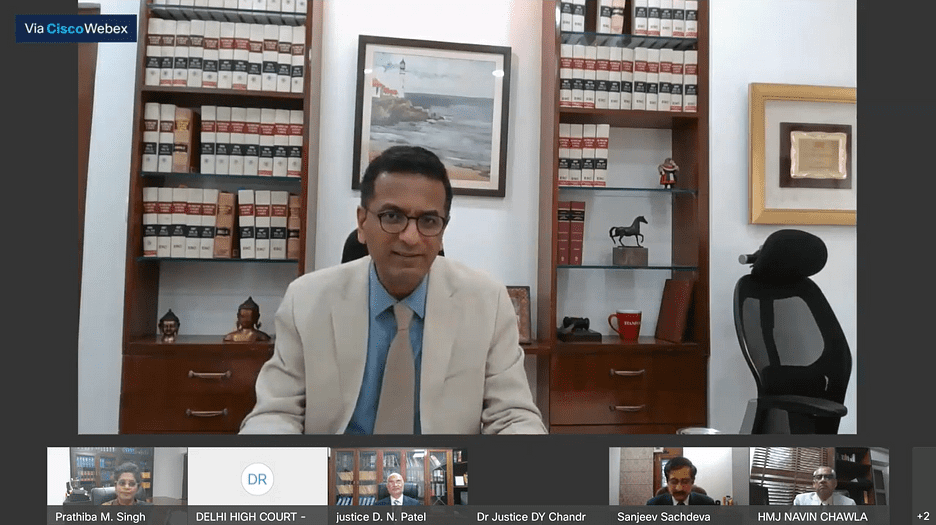Latest News
'Judiciary Shall Embrace The Use of E-Governance': Justice Chandrachud Says While Delhi's New Virtual Courts System Inaugurates

On May 13, the Delhi high court committee on information technology (IT) conducted a program to introduce the new virtual court system for the traffic challans recorded by CCTV cameras. That is where an Inauguration ceremony takes place for the first time in an online webinar.
The first of its kind was e-Inaugurated via webinar by Dr. Justice D. Y. Chandrachud (Judge, Supreme Court of India), Chairman of the E-Committee in the presence of Delhi High Chief Justice D. N. Patel, Justice Rajiv Shakdher, Chairman and Justice Sanjeev Sachdeva, Justice Prathiba M. Singh & Justice Navin Chawla, Members of the Committee on Information Technology, Delhi High Court and other companion Judges of the High Court.
The event begins with Justice Rajiv Shakdher's opening address, who is also the chairman of the information technology (IT) committee of the Delhi high court. Justice shakdher discussed the functioning of the system of virtual courts which has been working successfully in Delhi since 26 July 2019.
In the webinar, he represents also the following data:
The initiative has disposed of 730789 challans since its first establishment, resulting in the online collection of a fine amounting to Rs. 89,41,67,812/-. About 20 judges previously engaged in dealing with these challan traffic cases are free to adjudicate further cases.
After this the Delhi police commissioner, Mr. DN shrivastava, told the gathering about the virtual court system 's functioning. He said the second phase of the virtual court system would make enforcement and discipline increasingly transparent. There are thousands of violations that occur on a regular basis, and the figures will rise threefold until the vehicle works again.
The meeting was then briefed by Delhi High Court Chief Justice DN Patel claiming that:
‘Nothing is compulsory for any violator. He may say yes and compound the offence, or he may go to the court. But there's videographic evidence and the public will benefited as they will not be required to come to court. Nowadays, no one has time to come to the court.’
While addressing, Justice Chandrachud said that now the traffic police will give more time to their daily duties. Citizens won't have to come to court and spend the entire day paying the fine, either.
Justice Chandrachud also informed about various other online programs that are going to take place soon like, the Pilot system in Telangana for seamless administration of criminal justice, e-Seva Kendra as every member of the Bar is not technology-enabled, webinar in Supreme Court for the e-filing method for courts, etc.
He also said, "Chief Concept is access to video conferencing; we want to make sure that people have access to it as the right to learn about the media and the public is very crucial." Justice Chandrachud further commented that within 10 minutes of the virtual quotes 2.0, 95 thousand rupees were deposited, this shows the identical existence of the virtual Court working.
Dr. Chandrachud suggested that technology can also be adopted to settle disputes as provided for in Section 138 of the Negotiable Instrument Act.
As not every litigant or lawyer is well-worded with the technology, Justice Chandrachud told that on Friday the supreme court will host a webinar to clarify the e-filing method.
Justice Chandrachud gave following recommendations for seamless adoption of Technology:
- There should be seamless access to video-conferencing and the rules have to take into consideration the right to know of both the public and media.
- There should be interlinking of e-library across the country.
- Judicial data can be opened up for purpose and for enhancing the quality of service.
Justice Patel stated that “I’m sure public at large will be benefitted by the virtual Court and I’m Sure Version 2.0 will be much more successful.”



































































































